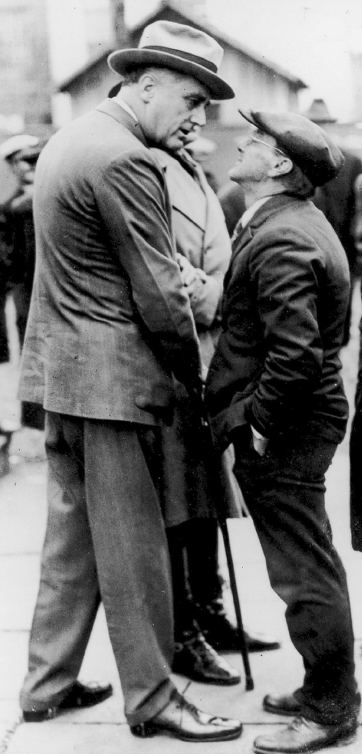How did Franklin D. Roosevelt win the 1932 election?
Printed Page 712

Figure false: Roosevelt’s Common Touch
Figure false: Sensing that his presentation of himself as a good neighbor was responsible for much of his popularity, Roosevelt arranged to have a friendly chat outside the polls in his hometown of Hyde Park with working-class voter Ruben Appel. In this photograph, Appel seems unaware that Roosevelt’s standing was itself a feat of stagecraft. Franklin D. Roosevelt Library.
UNLIKE THE MILLIONS of impoverished Americans, Franklin Delano Roosevelt came from a wealthy and privileged background that contributed to his optimism, self-confidence, and vitality. He drew on these personal qualities in his political career to bridge the economic, social, and cultural chasm that separated him from the struggles of ordinary people. During the twelve years he served as president (1933–1945), many elites came to hate him as a traitor to his class, while millions more Americans in his New Deal coalition, especially the hardworking poor and dispossessed, revered him because he cared about them and their problems.
KEY FACTORS
The 1932 Election
- – The election was held in the midst of the Great Depression.
- – Franklin Roosevelt believed that government should intervene to protect citizens from economic hardship.
- – President Herbert Hoover was highly unpopular.
- – Democrats had to overcome divisiveness within the party.
- – Roosevelt promised a “new deal” during the campaign but provided few details.